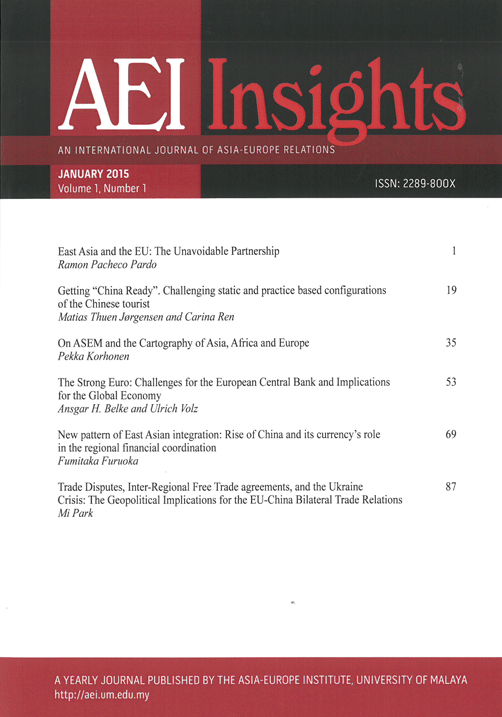Trade Disputes, Inter-Regional Free Trade agreements, and the Ukraine Crisis: The Geopolitical Implications for the EU-China Bilateral Trade Relations
Keywords:
World Trade Organization (WTO), China-Europe Trade, Free Trade Agreement (FTA), Global Governance, Regionalism, Trans-Atlantic Trade and Investment Partnership (TTIP), Trans-Pacific Partnership (TTP)Abstract
This paper examines three critical issues concerning the EU-China bilateral trade relations. First, it analyzes the contentious dynamics of trade disputes between the EU and China over rare earths and solar panels. Secondly, it discusses geopolitical implications of inter-regional free trade agreements (FTAs) such as the Trans Pacific Partnership (TPP) and the Transatlantic Trade Investment Partnership (TTIP). Thirdly, it explores the impacts of the Ukraine crisis on the bilateral economic development. The paper argues that with China’s growing market power, China has responded to the European Unions’ anti-dumping and anti-subsidy measures in an equally assertive manner by filing retaliatory investigations into several imports from the EU. With the threat of reprisal such as blocking EU access to China’s growing market, Beijing has successfully negotiated compromised solutions to the trade disputes. With regard to the geo-political implications of TPP, TTIP and the Ukraine crisis, it notes that these events may provide a renewed momentum for China and Russia to forge stronger economic ties among the BRICS (Brazil, Russia, India, China and South Africa) and to rally other nations in Asia and Latin America to join alternative trade blocs.




